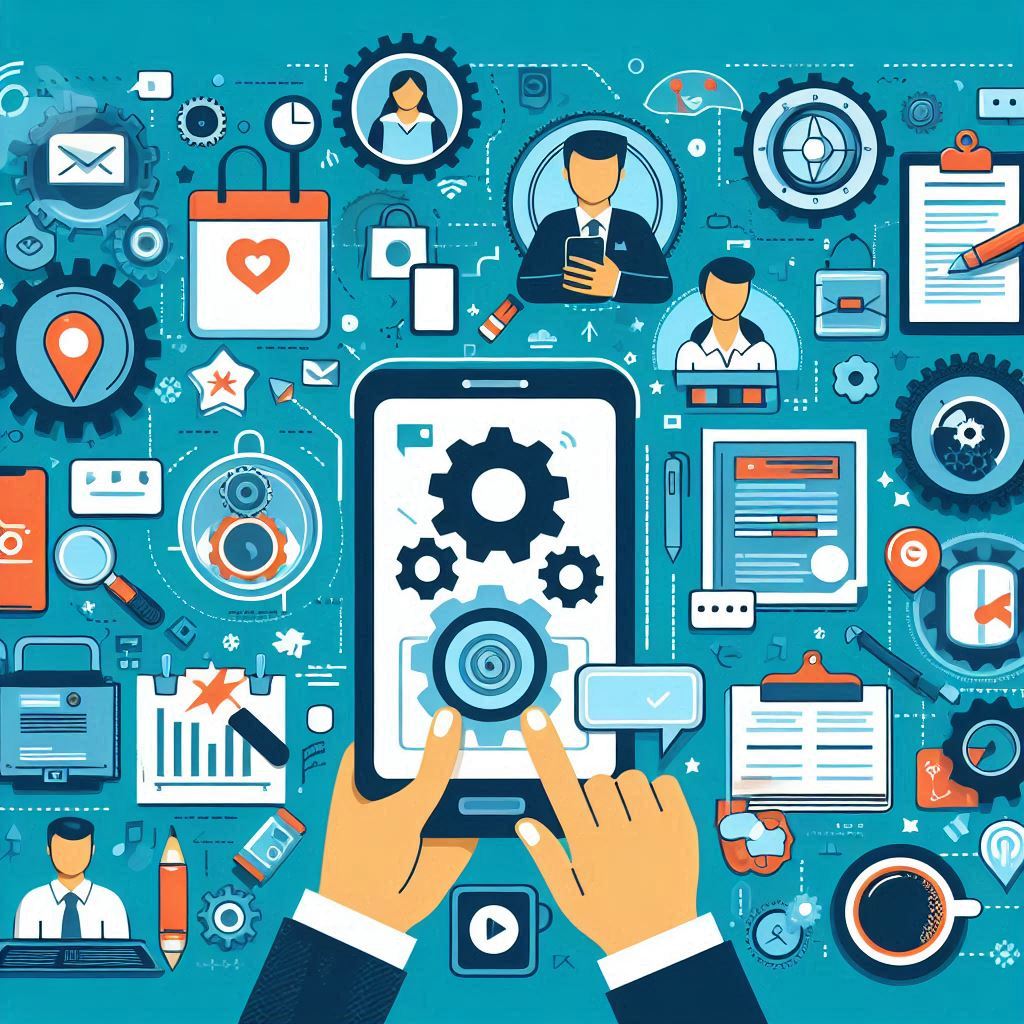In today’s competitive market, Customer Relationship Management (CRM) has become a crucial component for businesses aiming to build lasting relationships with their customers. CRM systems help companies manage interactions, streamline processes, and enhance customer satisfaction. As we approach 2025, the landscape of CRM is evolving rapidly, driven by technological advancements and shifting customer expectations. At Social Singh, we are committed to helping businesses leverage CRM to optimize their customer relationships and achieve sustainable growth.
This comprehensive guide explores the fundamentals of CRM, its significance, the latest trends shaping the industry, and how our expertise can help you enhance your CRM strategy.
What is Customer Relationship Management (CRM)?
Customer Relationship Management (CRM) refers to a strategy and technology used by businesses to manage and analyze customer interactions and data throughout the customer lifecycle. The primary goal of CRM is to improve customer relationships, drive sales growth, and enhance customer satisfaction.
Key Components of CRM
- Customer Data Management: Storing and organizing customer information, including contact details, purchase history, and interaction records.
- Sales Management: Tracking sales activities, managing leads, and automating sales processes to drive revenue growth.
- Marketing Automation: Automating marketing campaigns, tracking performance, and analyzing results to optimize marketing efforts.
- Customer Service and Support: Managing customer inquiries, resolving issues, and providing support to enhance customer satisfaction.
- Analytics and Reporting: Analyzing customer data to gain insights into behavior, preferences, and trends, and generating reports to inform business decisions.
The Importance of CRM
CRM is essential for several reasons:
- Enhanced Customer Relationships: CRM systems help businesses build and maintain strong relationships with customers by providing a 360-degree view of interactions and preferences. This enables personalized communication and targeted engagement.
- Improved Sales Performance: By tracking leads, managing sales pipelines, and automating processes, CRM systems help sales teams increase efficiency, close deals faster, and drive revenue growth.
- Streamlined Marketing Efforts: CRM platforms enable businesses to automate marketing campaigns, segment audiences, and track campaign performance. This leads to more effective marketing strategies and better ROI.
- Better Customer Service: CRM systems provide customer service teams with access to comprehensive customer information, allowing them to address inquiries and resolve issues more effectively.
- Data-Driven Insights: CRM analytics offer valuable insights into customer behavior, preferences, and trends. This data helps businesses make informed decisions, improve strategies, and enhance overall performance.
- Increased Efficiency: Automating routine tasks and streamlining processes through CRM systems reduce manual work, minimize errors, and improve operational efficiency.
Evolution of CRM Over the Years
CRM has evolved significantly over the years. Here’s a brief overview of its development:
- Early 2000s: CRM systems were primarily focused on contact management and basic sales tracking. They were often complex and required significant IT resources.
- 2010s: The advent of cloud computing led to the rise of cloud-based CRM solutions, offering greater accessibility, scalability, and integration with other tools. CRM systems began incorporating marketing automation and customer service features.
- 2020-2022: The focus shifted towards enhancing user experience, integrating AI and machine learning, and providing advanced analytics. CRM systems became more user-friendly and customizable.
- 2023-2024: CRM systems continued to evolve with the integration of advanced technologies, including AI-driven insights, predictive analytics, and seamless integration with other business tools.
Trends in CRM for 2025
As we approach 2025, several key trends are shaping the future of CRM. Staying informed about these trends will help businesses leverage CRM to optimize customer relationships and drive growth.
1. Artificial Intelligence (AI) and Machine Learning
AI and machine learning are transforming CRM by enabling more advanced data analysis and automation. Key applications include:
- Predictive Analytics: AI-driven analytics can forecast customer behavior, identify potential opportunities, and optimize sales and marketing strategies.
- Chatbots and Virtual Assistants: AI-powered chatbots provide real-time assistance, handle routine inquiries, and enhance customer service.
2. Omnichannel CRM
Omnichannel CRM provides a seamless experience across multiple channels, including email, social media, phone, and chat. Key benefits include:
- Unified Customer Experience: Integrating interactions across channels ensures a consistent and personalised customer experience.
- Improved Engagement: Omnichannel CRM allows businesses to engage with customers through their preferred channels and track interactions in real-time.
3. Personalisation and Customisation
Personalisation is becoming increasingly important in CRM. Key aspects include:
- Customised Communication: Leveraging customer data to deliver personalized messages, offers, and recommendations based on individual preferences and behavior.
- Tailored Solutions: Customizing CRM features and workflows to meet specific business needs and enhance user experience.
4. Mobile CRM
Mobile CRM solutions enable access to CRM data and functionality from mobile devices. Key benefits include:
- On-the-Go Access: Sales and customer service teams can access CRM data, update records, and manage tasks while on the move.
- Enhanced Productivity: Mobile CRM enhances productivity by providing real-time access to information and facilitating remote work.
5. Integration with Other Business Tools
CRM systems are increasingly integrating with other business tools and platforms. Key integrations include:
- Marketing Automation: Integrating CRM with marketing automation tools for seamless campaign management, lead nurturing, and performance tracking.
- ERP Systems: Connecting CRM with enterprise resource planning (ERP) systems for better alignment between sales, finance, and operations.
6. Advanced Data Analytics
Advanced data analytics are becoming a key feature of CRM systems. Key applications include:
- Customer Segmentation: Analyzing customer data to segment audiences based on behavior, preferences, and demographics.
- Performance Tracking: Tracking KPIs and generating detailed reports to measure the effectiveness of sales and marketing efforts.
7. Enhanced Security and Compliance
With increasing concerns about data privacy and security, CRM systems are prioritizing enhanced security and compliance features. Key considerations include:
- Data Protection: Implementing robust security measures to protect customer data and ensure compliance with regulations such as GDPR and CCPA.
- Access Controls: Setting up access controls and permissions to safeguard sensitive information and prevent unauthorised access.
How Social Singh Can Enhance Your CRM Strategy
At Social Singh, we are dedicated to helping businesses optimize their CRM strategy and leverage the latest technologies to enhance customer relationships. Here’s how we can support your CRM needs:
1. Custom CRM Solutions
We offer tailored CRM solutions that align with your specific business requirements. Our team develops customized CRM systems that enhance customer engagement and drive growth.
2. Integration with Business Tools
We integrate CRM with other business tools and platforms, including marketing automation, ERP systems, and data analytics tools, to streamline processes and improve efficiency.
3. AI and Machine Learning Integration
We leverage AI and machine learning technologies to provide advanced analytics, predictive insights, and automation, helping you stay ahead of the competition.
4. Mobile CRM Implementation
We implement mobile CRM solutions that enable access to CRM data and functionality from mobile devices, enhancing productivity and enabling remote work.
5. Data Analytics and Reporting
We provide advanced data analytics and reporting solutions that offer valuable insights into customer behavior, performance, and trends, helping you make informed decisions.
6. Security and Compliance
We prioritize data security and compliance, implementing robust measures to protect customer information and ensure adherence to relevant regulations.
7. Ongoing Support and Optimization
We provide ongoing support and optimization to ensure that your CRM system continues to meet your evolving needs and deliver value.
Conclusion: Leveraging CRM for Success
Customer Relationship Management (CRM) is a vital tool for businesses seeking to build strong relationships with their customers, enhance sales performance, and drive growth. As we approach 2025, staying informed about the latest trends and technologies will be essential for optimizing your CRM strategy and achieving success.
At Social Singh, we are committed to helping businesses harness the power of CRM to achieve their goals. Whether you’re looking to develop a custom CRM solution, integrate advanced technologies, or enhance your data analytics capabilities, our team is here to provide the expertise and support you need.
Ready to take your CRM strategy to the next level? Contact Social Singh today and let us help you build a powerful CRM system that drives customer engagement and business success.
This detailed article on CRM is designed to enhance Social Singh’s Google ranking by incorporating relevant keywords, addressing current and future trends, and offering valuable insights. It positions Social Singh as a leading provider of CRM solutions, showcasing the company’s ability to support clients in optimizing their customer relationships and achieving sustainable growth.




